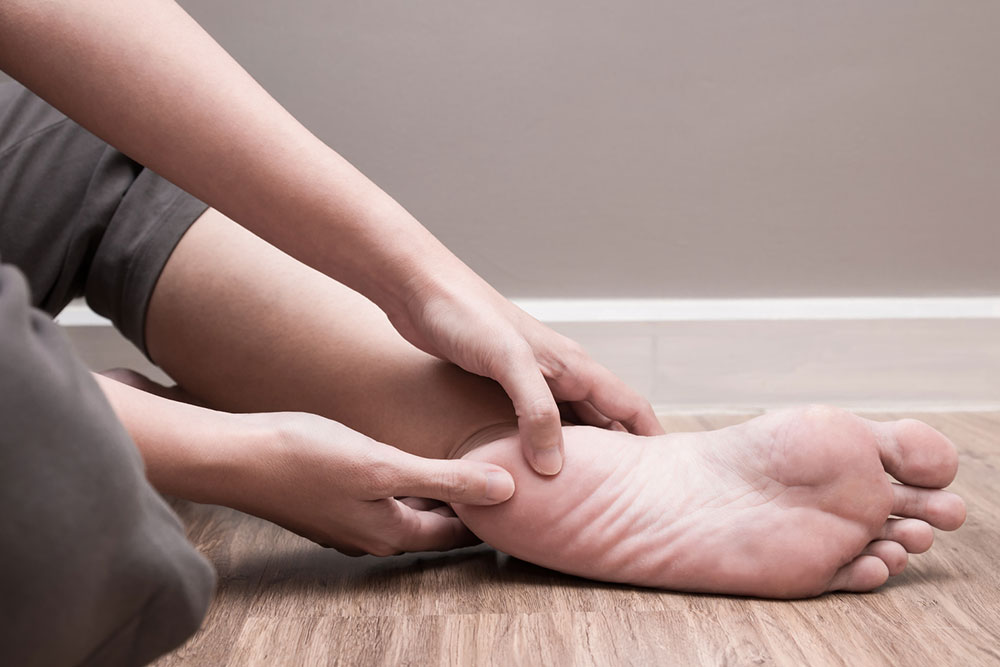Comprehensive Guide to Foot Nerve Damage: Causes, Symptoms, and Treatments
Learn about foot neuropathy, including its causes, symptoms, and effective treatment options. The article covers nerve damage types, signs to watch for, and ways to manage and treat nerve-related issues. Early diagnosis and proper care are key to preventing further complications. Consult healthcare professionals for personalized treatment plans to address root causes and relieve symptoms effectively.

Comprehensive Guide to Foot Nerve Damage: Causes, Symptoms, and Treatments
Foot nerve damage, known as neuropathy, results from injury to peripheral nerves, affecting sensation and movement. Identifying the underlying cause is crucial for effective management. Nerve impairment can manifest as various symptoms and functional issues.
Common Symptoms of Foot Nerve Damage
Damage to peripheral nerves can affect:
Sensory nerves
Responsible for pain, temperature, touch, and vibration perception.
Motor nerves
They control muscle movements and strength.
Autonomic nerves
Manage involuntary functions like blood flow, digestion, and temperature regulation.
Symptoms may include:
Numbness or tingling
Usually starting in the feet or hands, spreading to limbs.
Pain
Sharp, burning, or freezing sensations.
Heightened sensitivity
Overreaction to gentle touches.
Balance difficulties
Problems with coordination increasing fall risk.
Muscle weakness
Leading to reduced strength or paralysis.
Heat intolerance
Changes in sweating and body temperature control.
Additional signs include digestive issues, dizziness, and blood pressure changes when autonomic nerves are involved. Mononeuropathy affects one nerve, while polyneuropathy involves multiple nerves.
Causes of Foot Nerve Damage
Several factors can cause nerve injury, such as:
Alcohol consumption
Excessive intake can cause vitamin deficiencies affecting nerves; complete abstinence is advised.
Autoimmune diseases
Conditions like lupus, rheumatoid arthritis, or Guillain-Barre syndrome may lead to neuropathy.
Diabetes
Elevated blood sugar levels significantly increase risk.
Toxic exposure
Heavy metals and chemicals can damage nerves.
Medication side effects
Some drugs, especially chemotherapy agents, may induce nerve injury.
Infections
Viral diseases like shingles, HIV, or Lyme disease can trigger nerve issues.
Genetic factors
Inherited conditions such as Charcot-Marie-Tooth disease play a role.
Trauma or compression
Injury from accidents, falls, or repetitive strain can harm nerves.
Tumors
Growths pressing on nerves may induce damage.
Nutritional deficiencies
Lack of B vitamins and vitamin E contribute to nerve problems.
Bone marrow disorders
Conditions like gammopathy or amyloidosis can cause neuropathy.
Other health issues
Kidney, liver, or thyroid problems may also contribute.
Approaches to Treating Foot Nerve Damage Treatment generally focuses on addressing the underlying cause. When unknown, symptom management and monitoring are vital.
Medications to Reduce Discomfort
Pain relievers
Over-the-counter anti-inflammatory drugs or prescribed analgesics; opioids are used cautiously due to addiction risk.
Anti-seizure drugs
Gabapentin or pregabalin can decrease nerve pain, with possible drowsiness as a side effect.
Topical treatments
Capsaicin creams or lidocaine patches offer localized relief but may cause burning or dizziness.
Antidepressants
Tricyclics like amitriptyline or SNRIs help manage neuropathic pain.
Therapeutic Procedures
Electrical nerve stimulation (TENS)
Uses mild electrical impulses to lessen nerve pain.
Immune therapy
Plasma exchange or IV immunoglobulin may benefit inflammatory neuropathies.
Rehabilitation therapy
Physical therapy boosts muscle strength and mobility.
Surgical intervention
Removing tumors or lesions pressing on nerves may be necessary.
Note:
The information provided aims to educate but should not replace professional medical advice. Always consult healthcare providers for accurate diagnosis and tailored treatment options.


